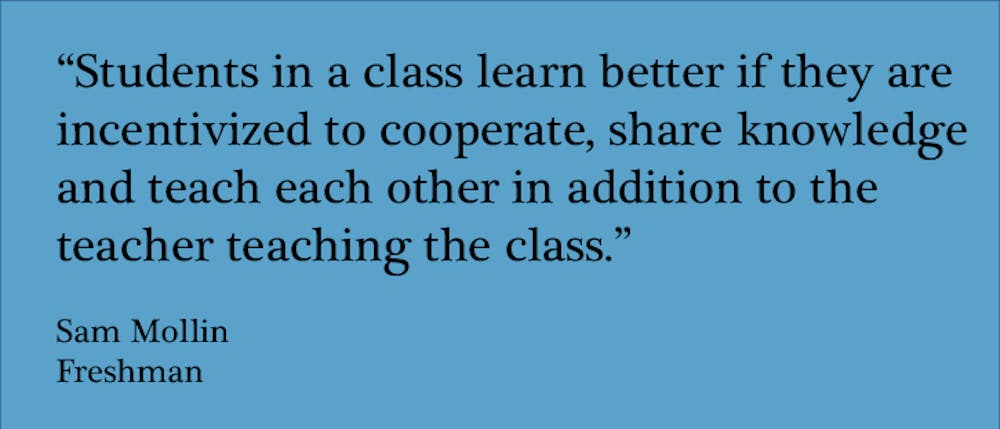Most people raised in the U.S. were taught the same thing about the purpose of testing in our education system: to prove just how much you know and to give you a grade based on how much of the class material you’ve successfully learned and memorized. Of course, some people are better test takers than others, and their scores reflect that. But nevertheless, tests still served as a measure of knowledge. For a while, in high school, that logic continued to hold true. As classes got harder, some tests would have a curve to boost lower grades to reflect the fact that if everyone in the class got a low score, it was likely a function of an overly difficult class rather than the students’ failure to learn. However, once in college, all that reasoning seems to have fallen to the cruel whims of the Bell Curve.
I’m sure we’re all familiar with the bell curve in grading. The bell curve logic, as opposed to the old logic, is that students should be given a grade in accordance with how their peers did. As a result, it aims to put most students in the middle, the very worst at the end and only the very best achievers at the top of the bell curve. If you don’t probe too deeply, it seems to make sense. But bell curves don’t work because they promote competition over learning.
Bell curves are a problem because they take the focus away from learning in many classes and redirect it toward competition. Students in a class learn better if they are incentivized to cooperate, share knowledge and teach each other in addition to the teacher teaching the class. I haven’t met a single person who would claim cooperation is a bad thing. And yet, the bell curve system right now completely eliminates the incentive for academic cooperation. In a bell curve system, only a certain number of top performers can get an A.
It doesn’t matter if you successfully learned 95 percent of the material if 50 percent of your class successfully learned 96 percent. Rather than earning the A you deserve on a test, a bell curve could downgrade you to a C. In a scenario like this, what incentive is there to cooperate? The incentive in an artificially limited environment like this is to forgo cooperation in order to ensure that any knowledge you have isn’t used against you to get a higher grade and prevent you from getting an A.
This laser sharp focus on competition is a problem for two reasons. The first, as stated before, is that it reduces cooperation, which is beneficial both for socializing and for simply learning the material. The second is that it increases stress. The workloads many students face at Hopkins are already frighteningly large. The pressure to get good grades looms over the huge proportion of undergraduates here who plan to apply to either medical, law or some other type of graduate school.
Even for those planning to go straight into industry, GPA still matters for reasons ranging from helicopter parents to securing internships to getting scholarships. This workload-related stress, already worse at Hopkins than at our peer institutions, is compounded by a bell curve that artificially limits high grades. It’s intuitively beyond stressful to not only have to worry about learning all the material but to worry about learning it better than all the other highly motivated students in your class.
Some might say this stress isn’t a problem. But at Hopkins, we have the worst workload-related stress of any of our peer institutions. This leads not only to the negative physical effects of a high-stress lifestyle, like less sleep, but more disturbing symptoms as well. As cited in the report from the Task Force on Student Mental Health and Well-being, 30 percent of Hopkins students have seriously considered suicide. This is a problem we need to address.
We cannot allow ourselves to face such work-related stress that we’re driven to suicide. All it would take is a change in grading policy to adjust the use of the bell curve. We can have a community with less stress, more academic achievement and greater cooperation. Hopefully, the administration seriously considers this easily implementable step towards doing so.
Sam Mollin is a freshman political science major from Mamaroneck, N.Y.





